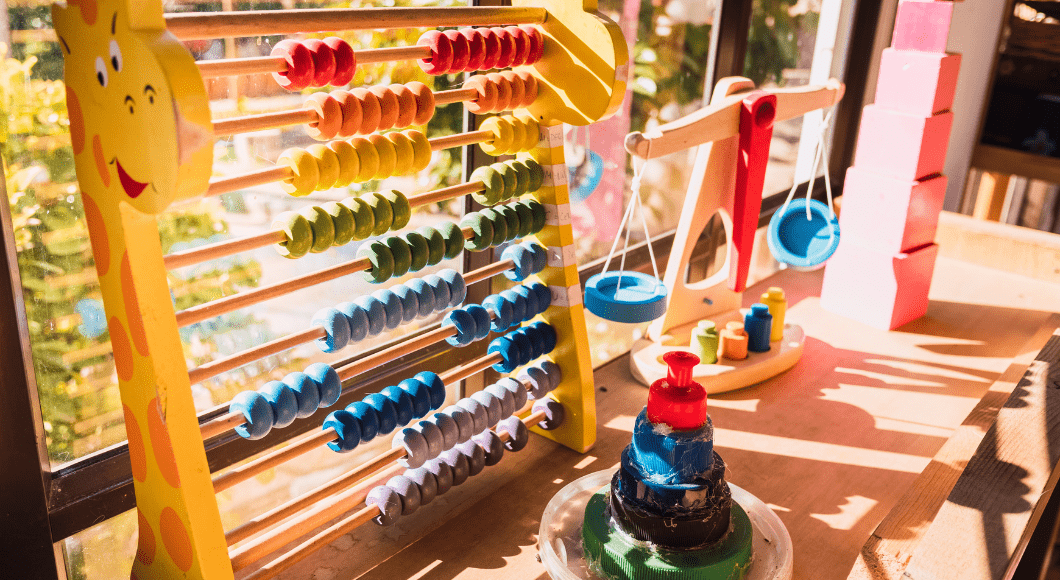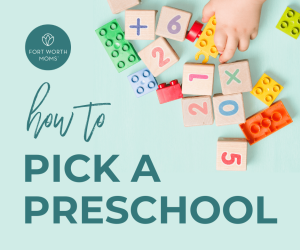
As a mom of three who works outside the home full-time and with a husband who does the same, deciding on childcare was a priority as soon as we found out we were pregnant with our first.
By the way, for what it’s worth, here is what we did with each of our littles.
With our first, my mother-in-law lived close enough to us that she commuted an hour total daily and watched Olivia until age one. We compensated our mother-in-law, and then Olivia went to daycare when a spot finally opened in our second choice.
With our second, we had moved to The Colony, so my brother and sister-in-law moved in with us and watched Orion until he was about six months old. Then he went to our first choice daycare.
With our third and final, Owynn started daycare at the same place Orion attended at 14 weeks.
Here are a few tips on things to consider when choosing daycare based on our experience and crowdsourcing from my mom squad.
>> RECOMMENDED RESOURCE :: Guide to Childcare <<
1. Start the Search Early
Upon advice from other working moms, we toured daycares in Dallas and put our names on waiting lists before we even told family and friends that we were expecting. We still had to wait a year before a spot opened up. My sister and brother-in-law had a similar experience in Austin.
So my first tip on choosing daycare is to make a list of establishments, schedule visits, and put your name on lists (and pay the requisite fees) early.
2. Avoid Flu Season
With our first, we started Olivia right in the middle of flu season, and not having been around other kids for the first year of her life, she was suddenly sick all the time. This may be just how we feel, but we pretty much paid for daycare for a year and hardly used it until Olivia’s immunity built up.
So my second tip on starting daycare is to try to avoid flu season when starting and be prepared with backup care (or save your sick days) for when they get sick.
With Orion, we waited until flu season was over before he started daycare. Perhaps it was also because of exposure to his older sister’s germs, but Orion was hardly sick and did not have to miss daycare often.
3. Take a Tour(s)
From all the moms I’ve talked to, this is a must. It is important to see firsthand the caretaker-child ratio, the cleanliness of the facility, the safety measures, etc. You need to feel the energy and the vibe of everyone you encounter. You can certainly schedule a tour to get the need-to-know information, but some moms swear by a surprise visit to get a more realistic view.
Prepare a list of questions of things that are important to you that you will ask every facility so you can make an “apple-to-apple” comparison.

4. Get Referrals to Verify Reputation
Some moms like myself prefer daycares with a strong brand or reputation. Personally, I like the concept of oversight: Some corporate entity (beyond an overworked government agency) that ensures that standards are met, that curriculums are followed, and professional development is provided to the staff.
Of course, independent daycares or daycares affiliated with churches could provide just the same type of attention.
Regardless of which you choose, consider getting referrals either from asking for some names during a tour or getting some opinions from a local mom Facebook group. Look for and read reviews (but take them with a grain of salt).
5. Know Thyself
Be real about what your needs are as a family. While I loved one daycare that had a Spanish immersion program, it was farther from our home, had less flexible hours, and did not provide food.
I don’t love admitting that convenience trumps a more rigorous curriculum, but the daycare we ended up choosing is less than two miles away, opens at 7:00 a.m. and closes at 6:00 p.m., and provides breakfast, mid-morning snack, lunch, and mid-afternoon snacks. This works better for our family.
As you consider what works best for your family, think about proximity, commute patterns, the hours of operation, whether food is provided, whether uniforms are required, your budget, and daycare policies (such as what happens if you’re late during pickup or how illness or injuries are handled).
6. Know Your Kid
This may seem super obvious but it bears noting. Does your kiddo need a lot of movement? Then consider how much outside time and playtime is provided. Maybe he or she would thrive at a school that “switches” classes instead of being in one main room all day long.
All daycares have to stay below a certain teacher-student ratio to be accredited, but maybe your child would fare better in a much smaller class. Or maybe you have a picky eater, and you need to be able to send snacks and lunches every day.
Part of having a successful relationship with a daycare is knowing what your kid needs and being very transparent with the facility about them and having open communication on whether your expectations can be met.
While an important decision, know that no daycare is perfect. And know that it may take a couple of tries before you find your village.













